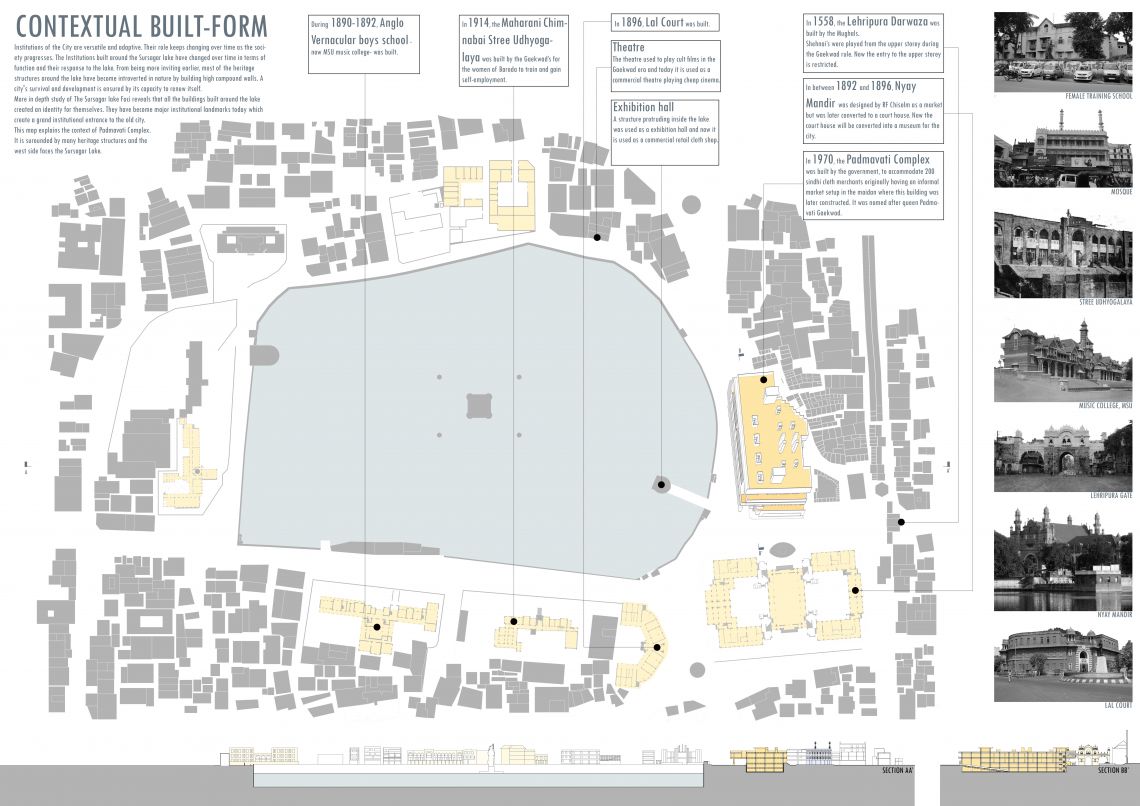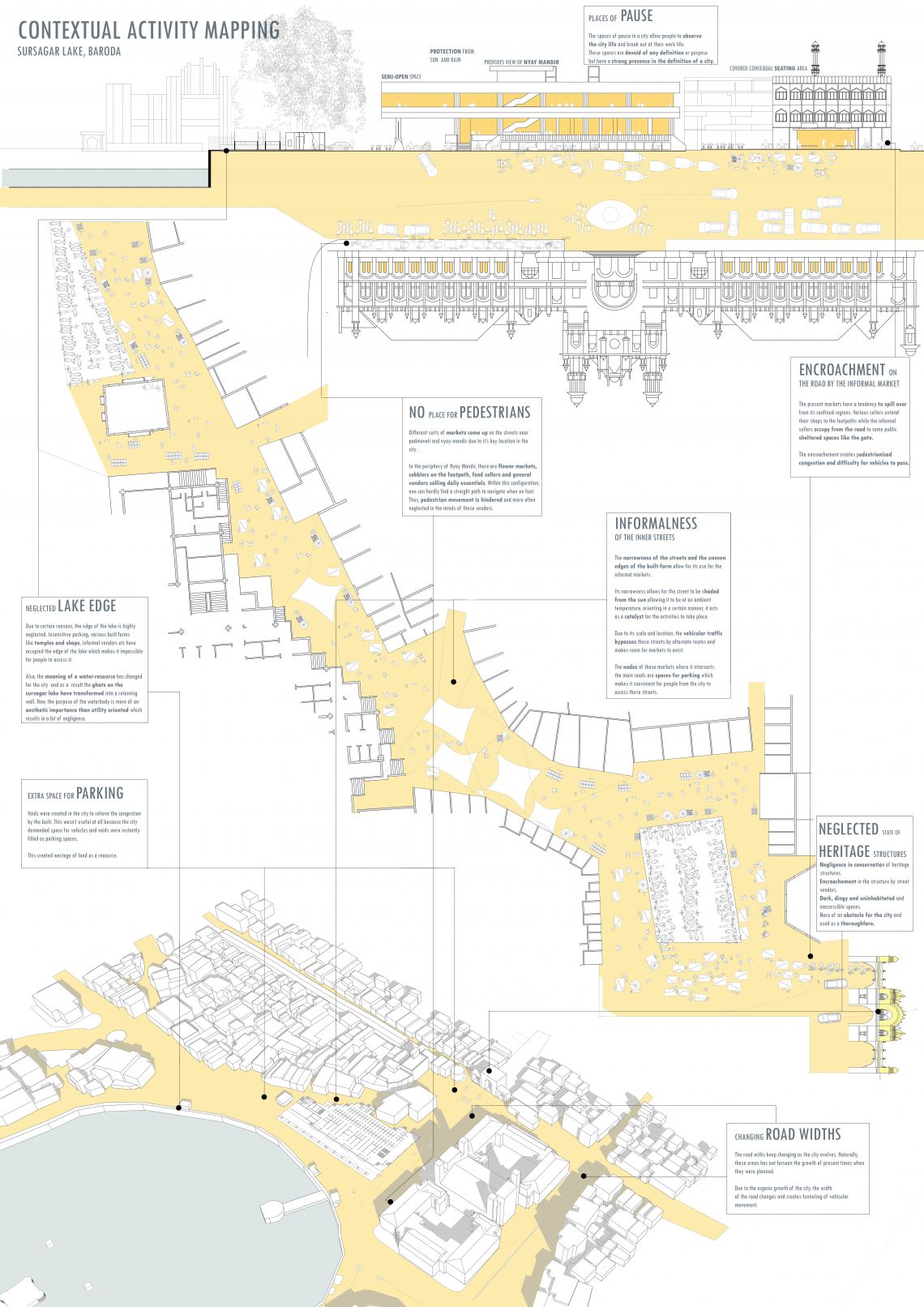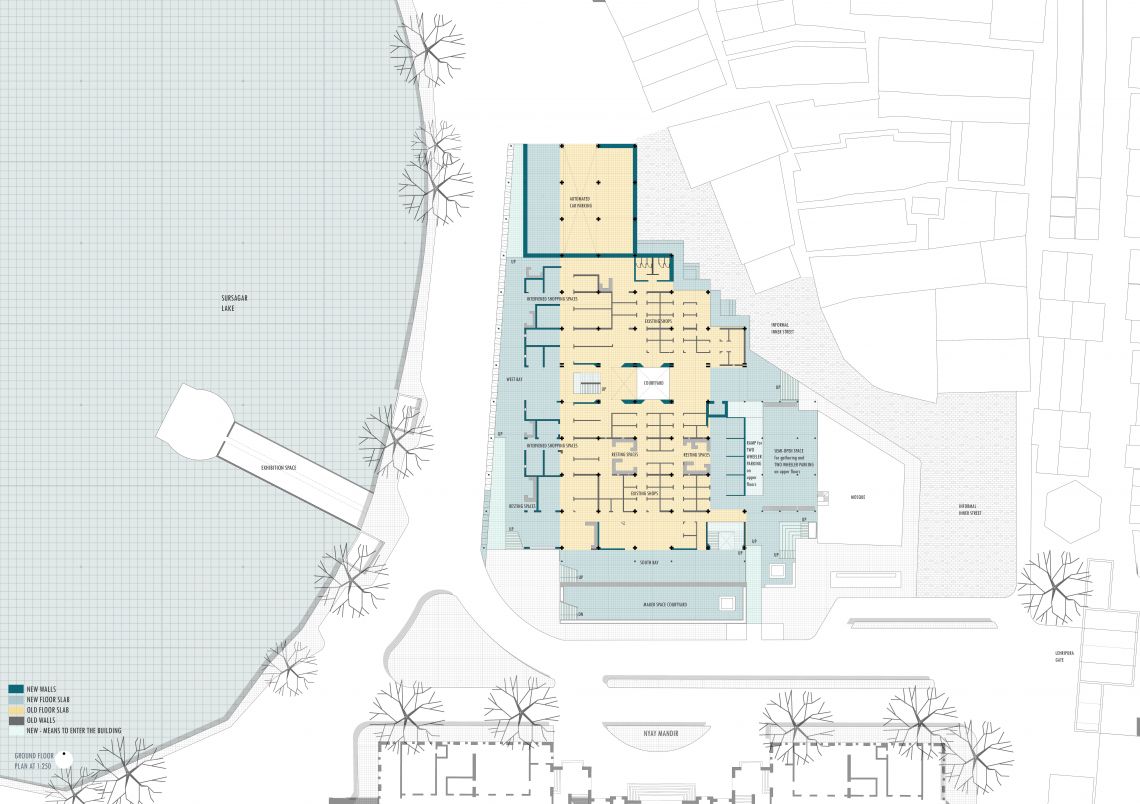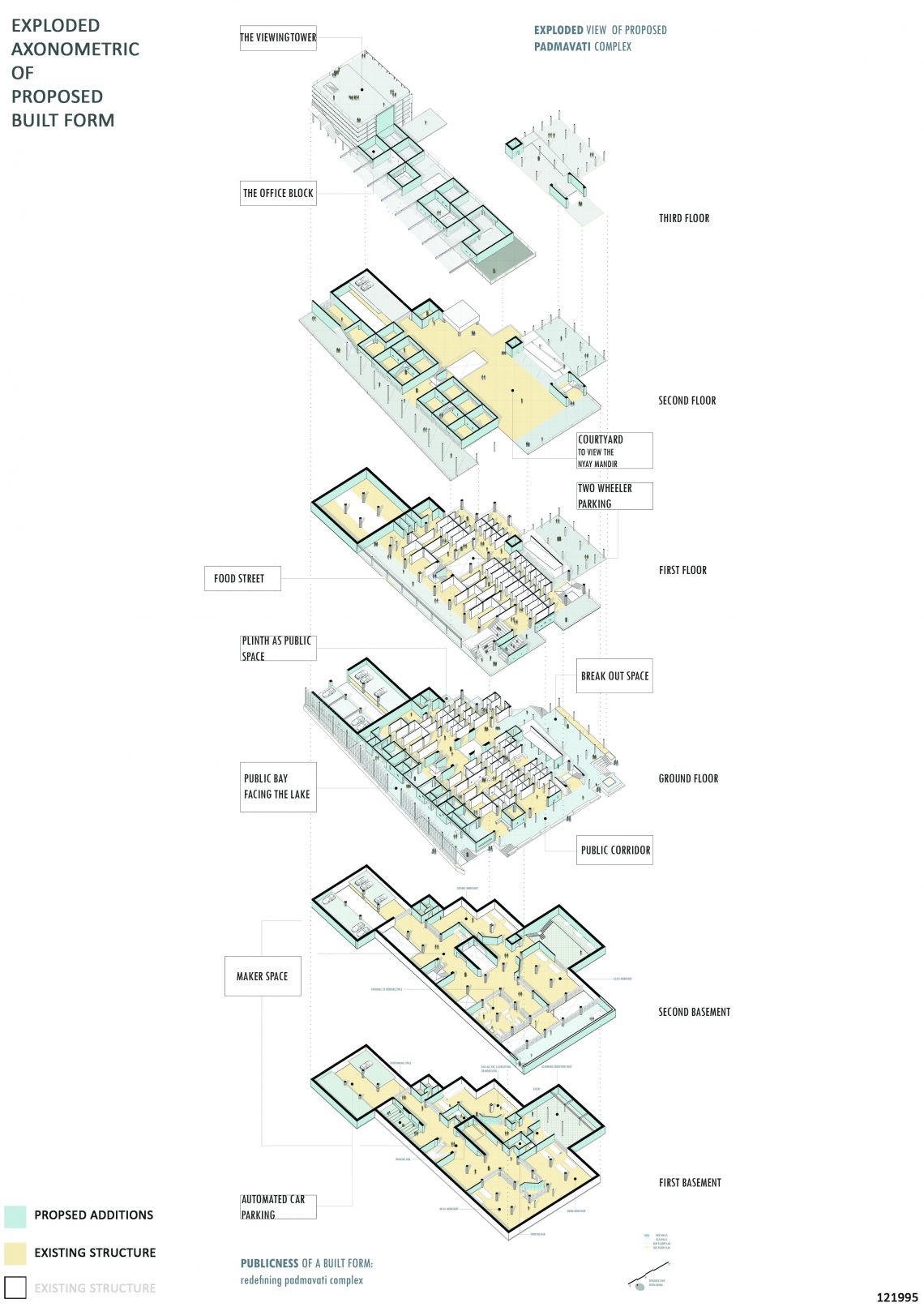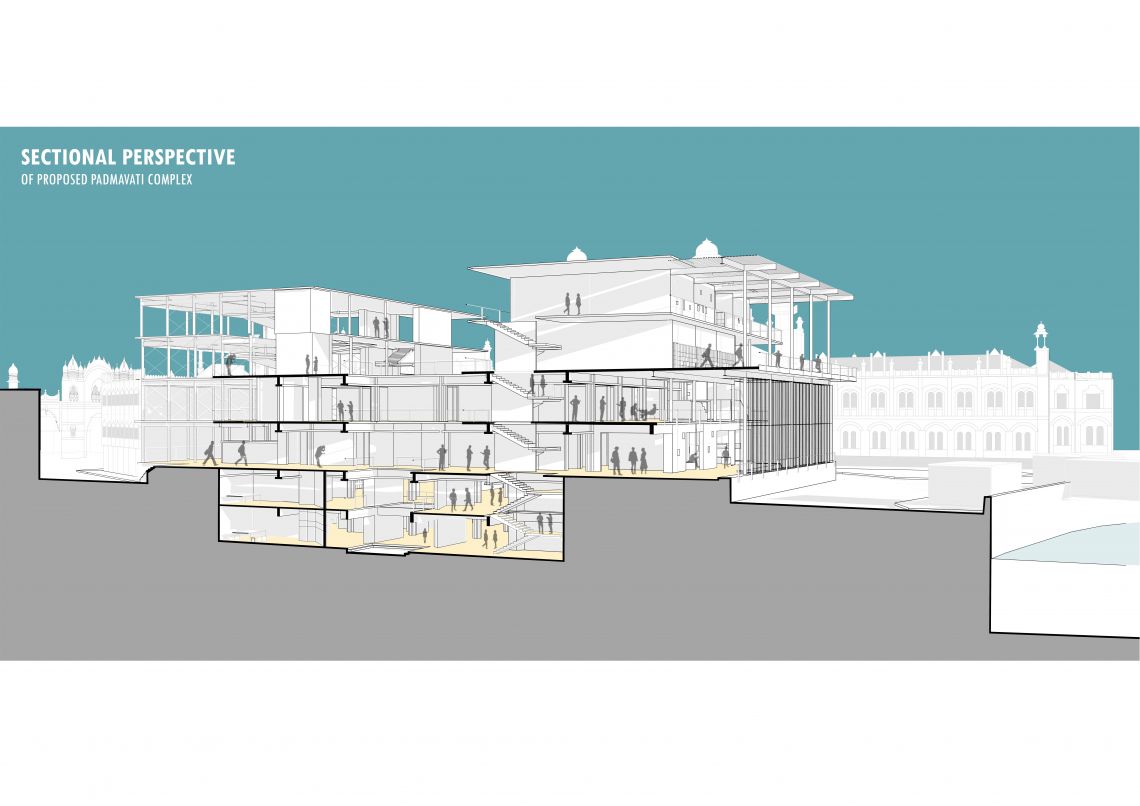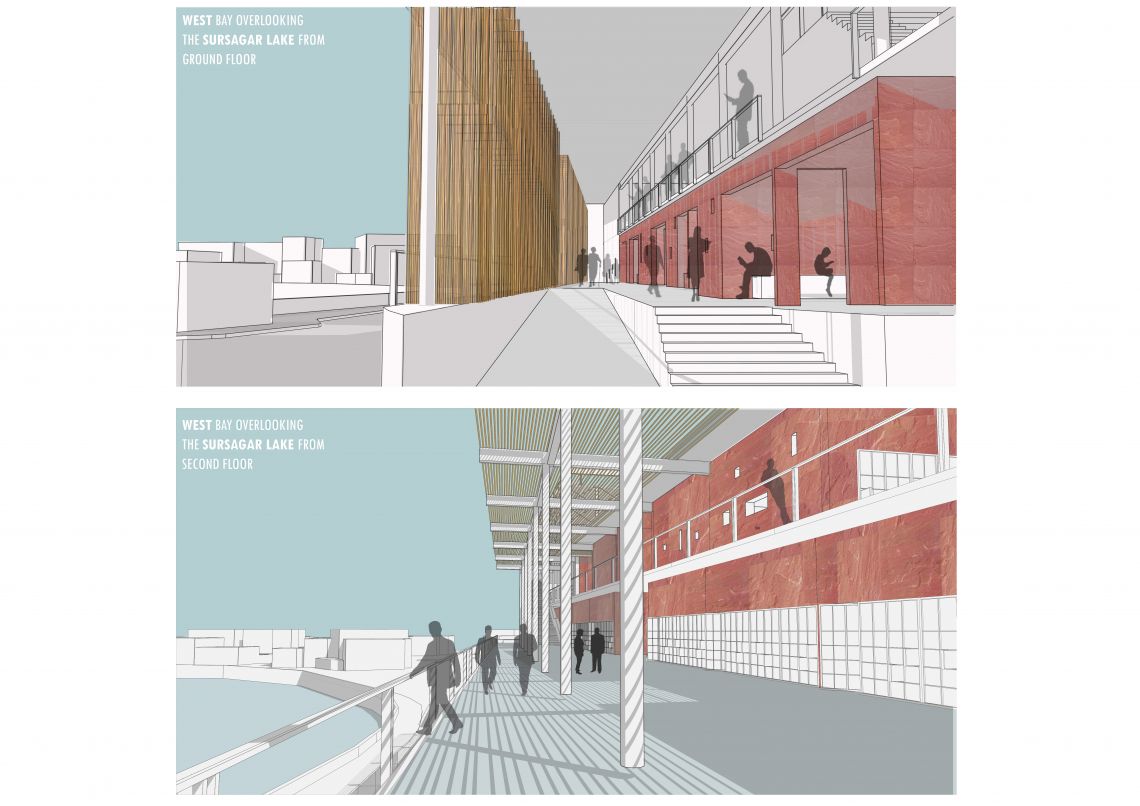Your browser is out-of-date!
For a richer surfing experience on our website, please update your browser. Update my browser now!
For a richer surfing experience on our website, please update your browser. Update my browser now!
The city of Baroda has a rich history and heritage due to mughal and gaekwad rule. Post Independence the city saw rapidly grew in an uncontained manner. In the bid to make it a smart city, it is undergoing large scale demolition. One specific building, believed to be demolished soon is the Padmavati Shopping complex located in the heart of the old city. It is an inmportant landmark that houses a cloth market and was designed to sit amidst heritage structures in its vicinity. It is a great example of how modern architecture. If demolition of the complex holds merit for the government, this thesis is another way to look at the same structure without demolishing it. Today, urban Settlements are in great need of legal parking spaces, defined spaces for informal market, commercial spaces, breakout spaces, accessible larger public spaces, more spaces to co work and produce - this thesis aims at exploring them through adaptive reuse, additions and subtractions to Padmavati complex. The Ultimate test of this project is its ability to define a lively public space in the complex. The blurred edges of the threshold and circulation is explored to achieve it. To be able to redefine old structures in a new capacity would be very important for the future of Urban settlements in Asia where cities are being overloaded with structures and many of them are becoming defunct at a fast rate. City dwellers would have to be more cautious of limited resources and rethink demolition of large scale structures as opposed to reusing them.


